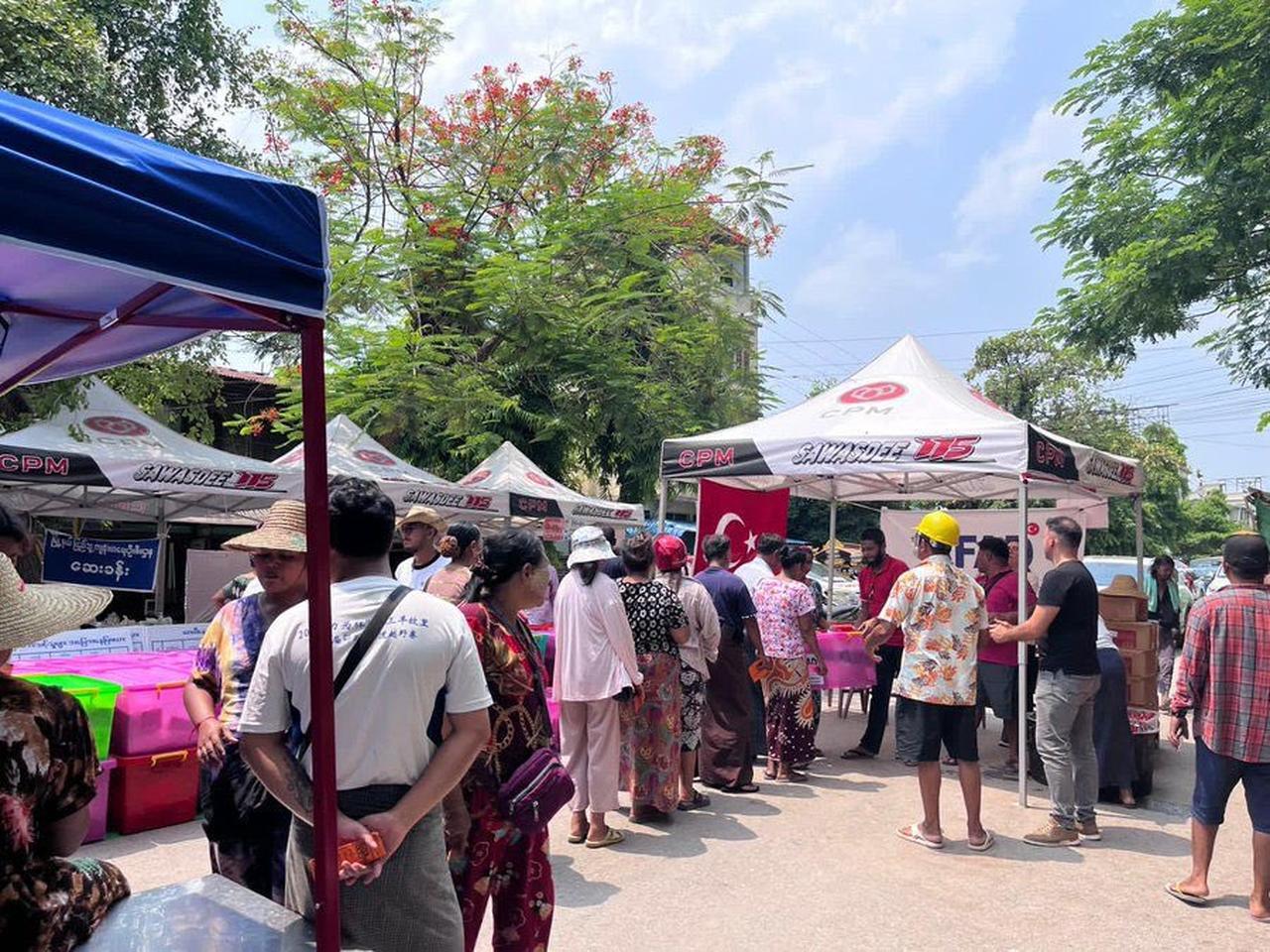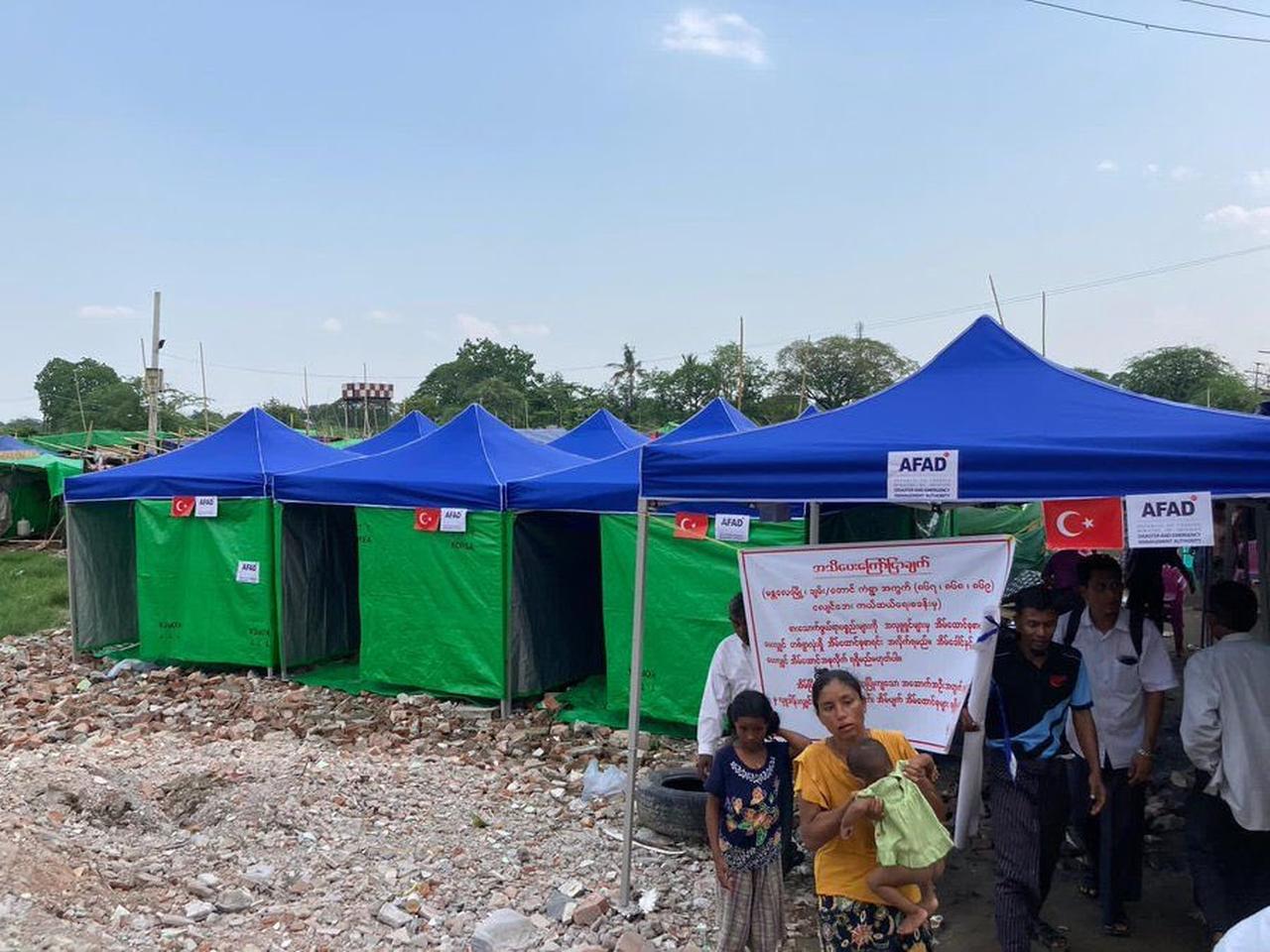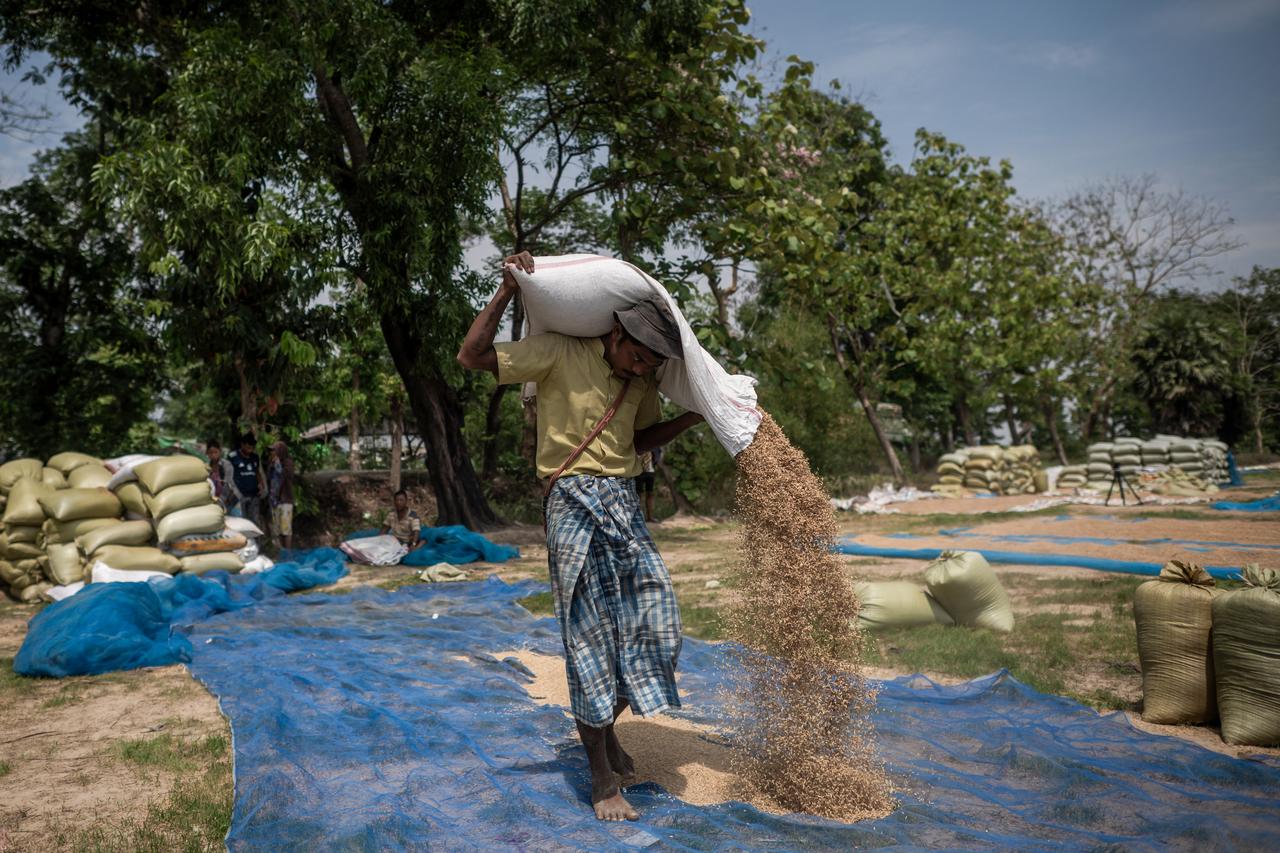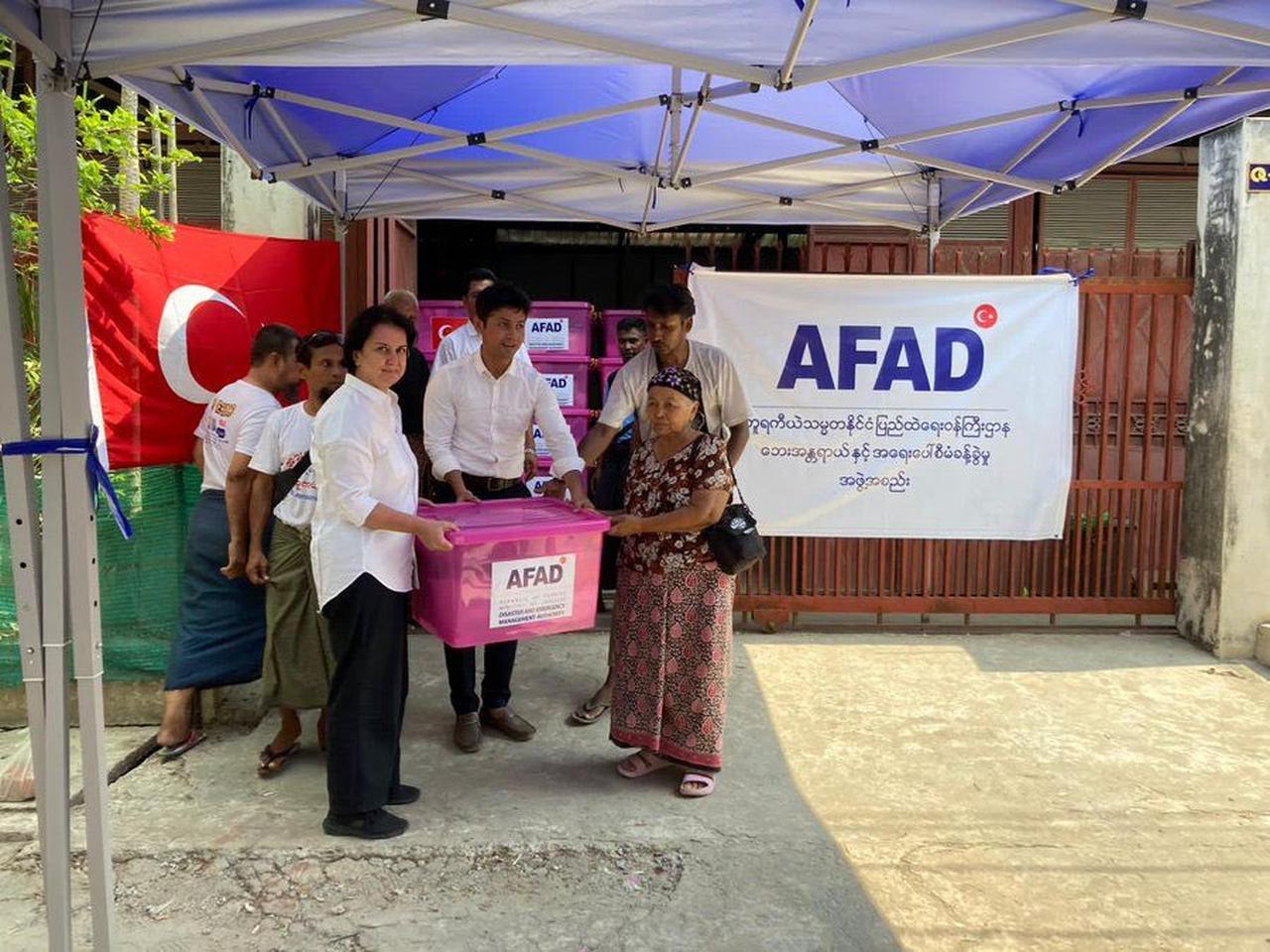
Humanitarian aid from Türkiye has reached those affected by the 7.7 magnitude earthquake that struck Myanmar on March 28, according to a statement from Türkiye's Disaster and Emergency Management Authority (AFAD).
"We continue to extend our nation's compassionate and merciful hand to all corners of the world, standing by those who are suffering and oppressed," AFAD said in its statement.
The aid package, which includes essential supplies such as food, medicine, tents, and portable stoves, was delivered to the earthquake-affected regions in coordination with Türkiye's Ministry of Interior, Ministry of Foreign Affairs, and the Turkish Embassy in Naypyidaw.
"The humanitarian aid materials, consisting of basic life necessities, were delivered to the region along with our country's well wishes. We are beyond our borders for humanity, as we are for our people in our country," the statement added.

Myanmar's military government has extended the temporary ceasefire declared after the March 28 earthquakes until May 31 to facilitate ongoing development and reconstruction efforts in affected areas, according to Chinese news agency Xinhua.
The military administration, which came to power in a coup, announced that the extension aims to ensure the effective and rapid continuation of search and rescue operations, development, reconstruction, and humanitarian aid efforts.
The announcement called on armed resistance groups not to attack the military's security forces during this period, warning that "necessary intervention" would be taken against such groups if they did.
Myanmar was hit by two powerful earthquakes on March 28, measuring 7.7 and 6.4 in magnitude. The disaster claimed approximately 3,700 lives and injured more than 5,000 people. The earthquakes, which were strongly felt in neighboring Thailand and China, caused widespread destruction across the country.
According to updated figures, the death toll has risen to 3,689, with 5,020 people injured. The earthquakes caused major devastation across five states and regions, affecting more than 1.3 million people.

UN High Commissioner for Human Rights Volker Turk on Friday called for urgent attention to the humanitarian crisis in Myanmar, emphasizing that people in the country desperately need food, water, shelter, peace, and protection due to ongoing violence and the recent earthquake.
"The unremitting violence inflicted on civilians, despite a ceasefire nominally declared in the wake of the devastating earthquake on March 28, underscores the need for the parties to commit to—and implement—a genuine and permanent nationwide halt to hostilities and return to civilian rule," Turk said in a statement reported by Anadolu Agency.
Turk urged the military to immediately stop all attacks on civilians, stressing that "This is the time to put people first, to prioritize their human rights and humanitarian needs, and to achieve a peaceful resolution to this crisis. Instead of further futile investment in military force, the focus must be on the restoration of democracy and the rule of law in Myanmar."

The head of the International Federation of Red Cross and Red Crescent Societies (IFRC) delegation in Myanmar, Nadia Khoury, reported that significant humanitarian needs persist a month after the earthquakes, with additional concerns arising as the cyclone and monsoon seasons approach.
Speaking at the United Nations Geneva Office's weekly press briefing, Khoury stated, "Even a month after the Myanmar earthquake, humanitarian needs continue to be enormous."
Khoury highlighted that the IFRC, working with the Myanmar Red Cross and other partners, has provided life-saving support to more than 110,000 people so far. Their efforts include providing safe drinking water through purification, distributing essential supplies, and offering basic healthcare services through mobile health clinics.
Despite launching an emergency appeal for 100 million Swiss francs to fund relief operations, Khoury noted that only 15% has been financed, which is insufficient given the scale of the disaster.
"The earthquake affected more than 1.3 million people in 5 states and regions of the country.
This means there is an urgent need for more international funding," Khoury emphasized.